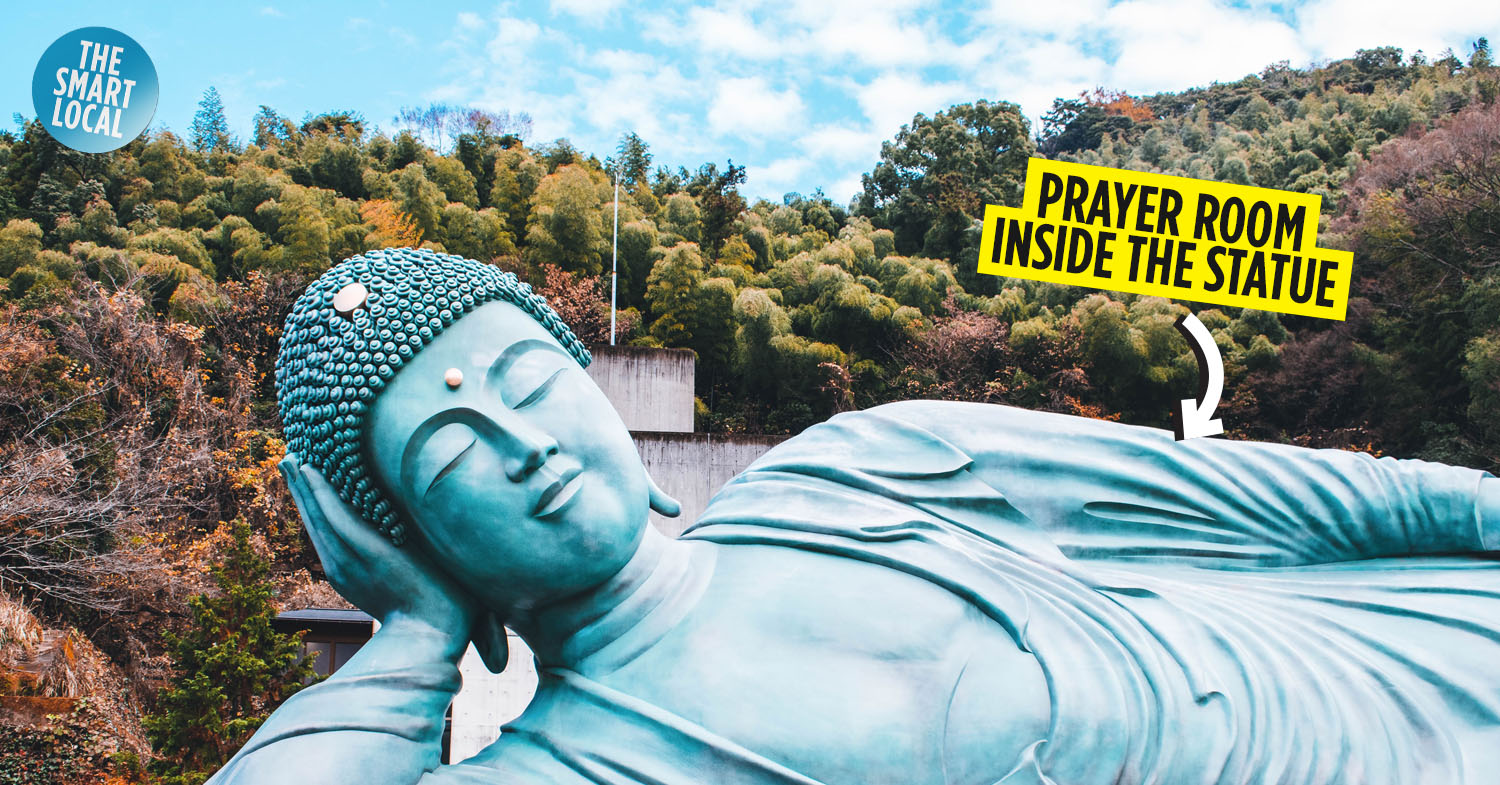Nanzoin Temple in Fukuoka
New York has the Statue of Liberty as a representative, while Fukuoka has a giant reclining Buddha. Lying across a 41m-long stretch, the statue – located at Nanzoin Temple (南蔵院; Nanzoin) – is used to house the sacred ashes of Buddha and the disciples.
Besides the aforementioned reclining Buddha, you’ll also find the fearsome looking Fudo Myoo, who owns a menacing gaze that will elicit gasps of awe amongst onlookers, as well as a group of arhat statues and the Seven Lucky Gods.
The meaning and origin of the reclining Buddha
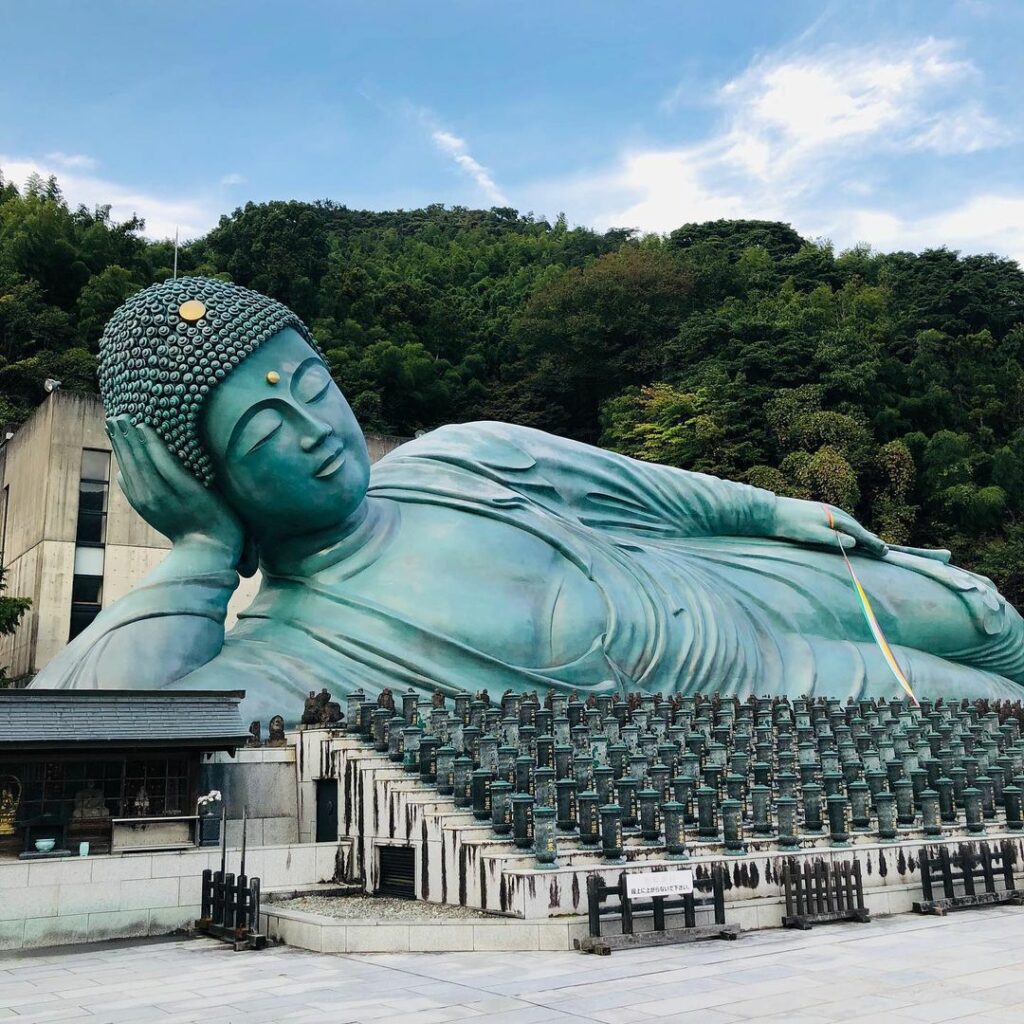
Image credit: @sungo.jp
The massive 250-tonne reclining Buddha at the Nanzoin Temple stretches 41m in length and 11m in height. With a right hand propping up its head, the Buddha statue looks like it’s at ease, as if it doesn’t have a care in the world. In fact, the “reclining Buddha” is a staple in Buddhist art.
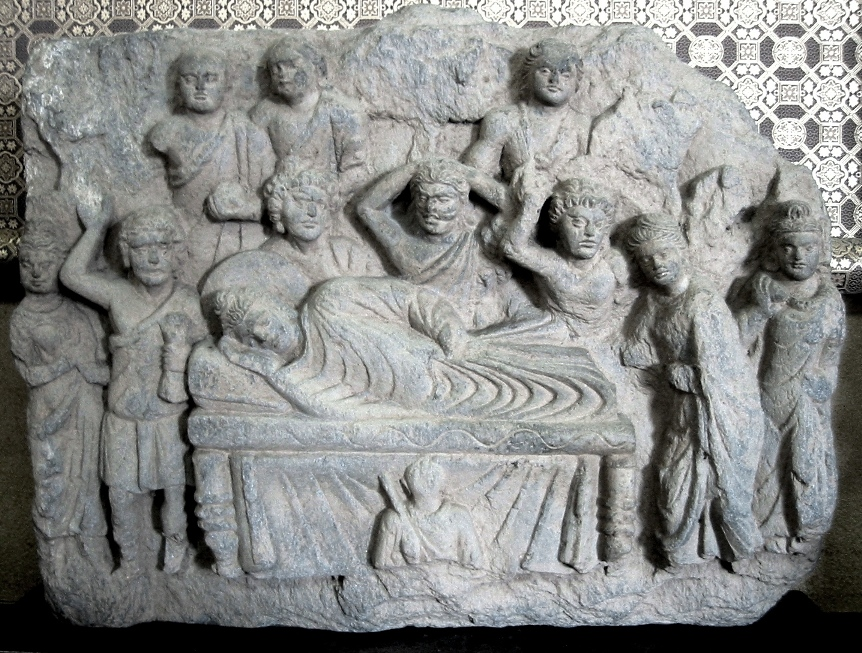
Carvings depicting the parinirvana of the Buddha found at Zenyoumitsu Temple of Tokyo
Image credit: Wikimedia Commons
The depictions of Buddha in the horizontal position are meant to represent Buddha approaching parinirvana, which is the state of reaching the final stage of nirvana (true enlightenment) post-death.
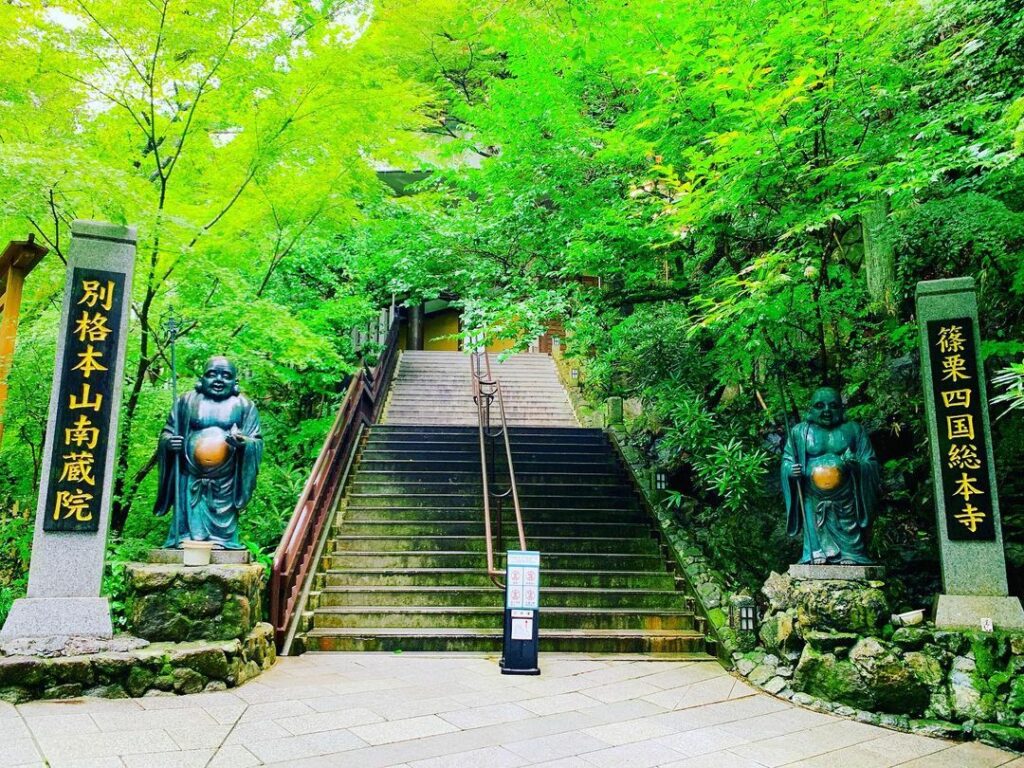
A stairway in Nanzoin Temple
Image credit: @muu093
Besides the cultural significance of a reclining Buddha, there also lies a heartwarming story behind the origin of this statue.
For many years, the Nanzoin Temple donated medical and essential supplies to children in Myanmar and Nepal. Out of gratitude, the Buddhist Council of Myanmar gifted the sacred ashes of Buddha and two of Buddha’s Principal Disciples, Ananda and Maudgalyayana. To house these ashes, the temple decided to construct the reclining Buddha statue.
In 1995, around 1,300 monks gathered at the temple for the unveiling ceremony of the statue, and it has remained well taken care of by the Nanzoin Temple ever since.
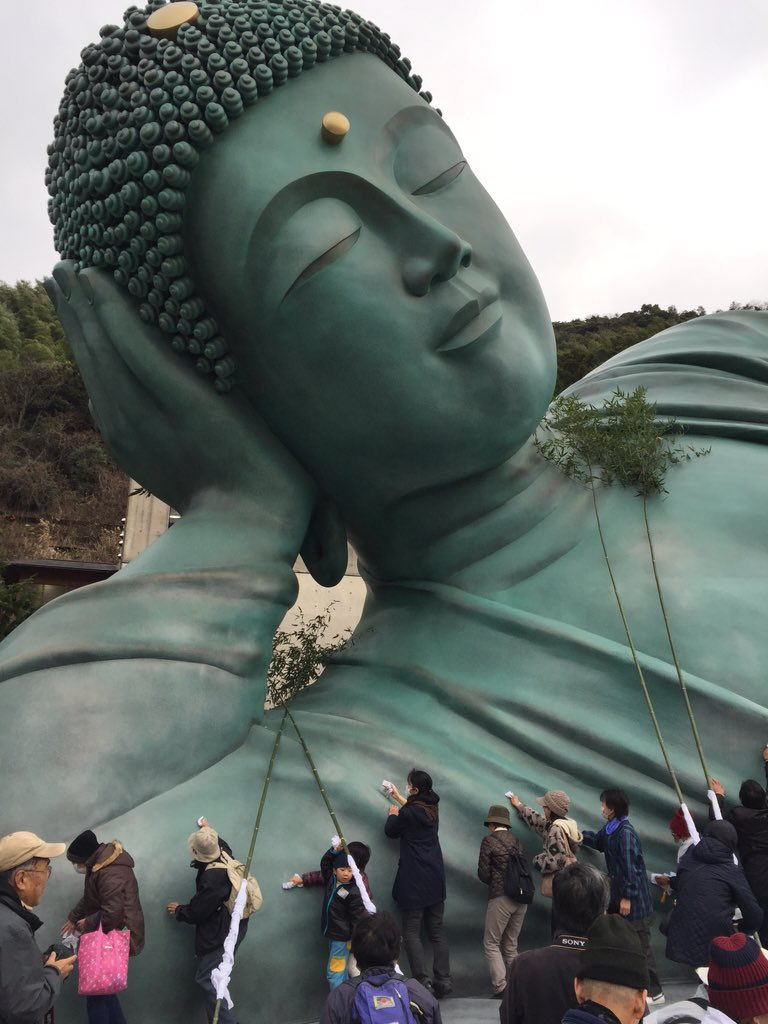
Image credit: @anoneko37
At the end of each year, the temple holds an annual cleaning session where people gather and use bamboo leaves to dust debris off the statue. This year, the cleaning session will take place on 26th December 2021. If you’d like to witness this interesting event, head down to Nanzoin Temple on this day.
For a calendar of other events happening at the temple, click here.
Other Buddhist statues in Nanzoin Temple
Nanzoin Temple is also home to many other magnificent statues that deserve a moment of appreciation too.
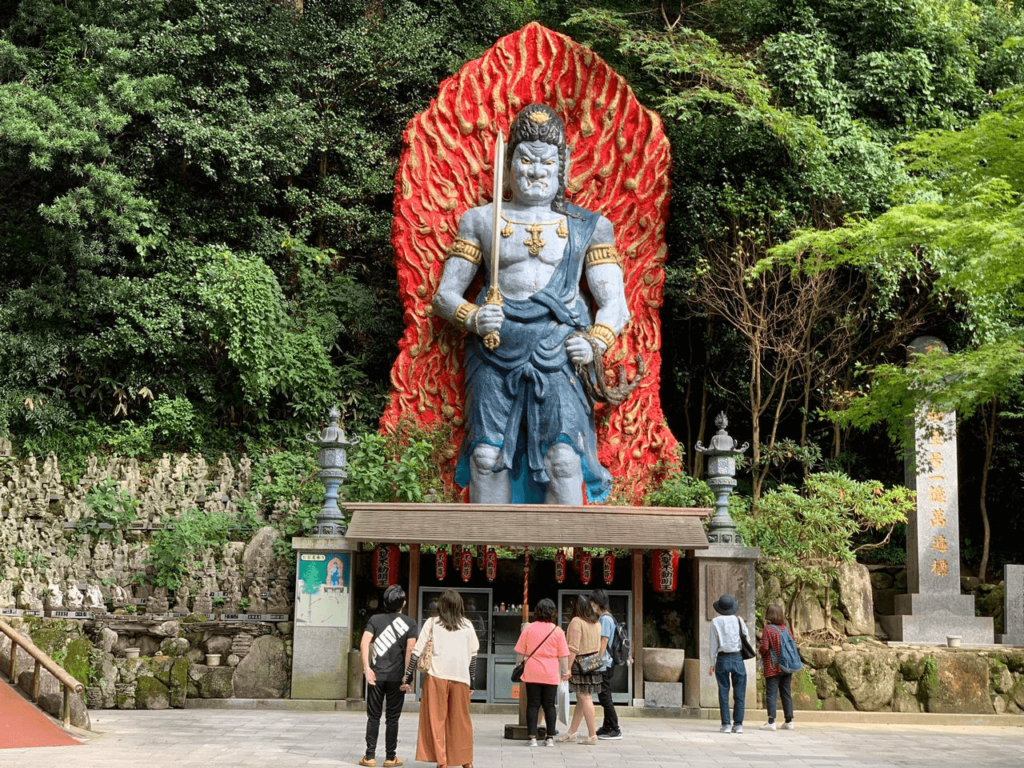
Image credit: @ninja_padrino
It’s hard to miss the Fudō Myōō (不動明王; the Immovable One) as you walk around the temple grounds. With a fearsome look, alert stance, and a sword in hand, the powerful fire deity looks every part the destroyer of evil.
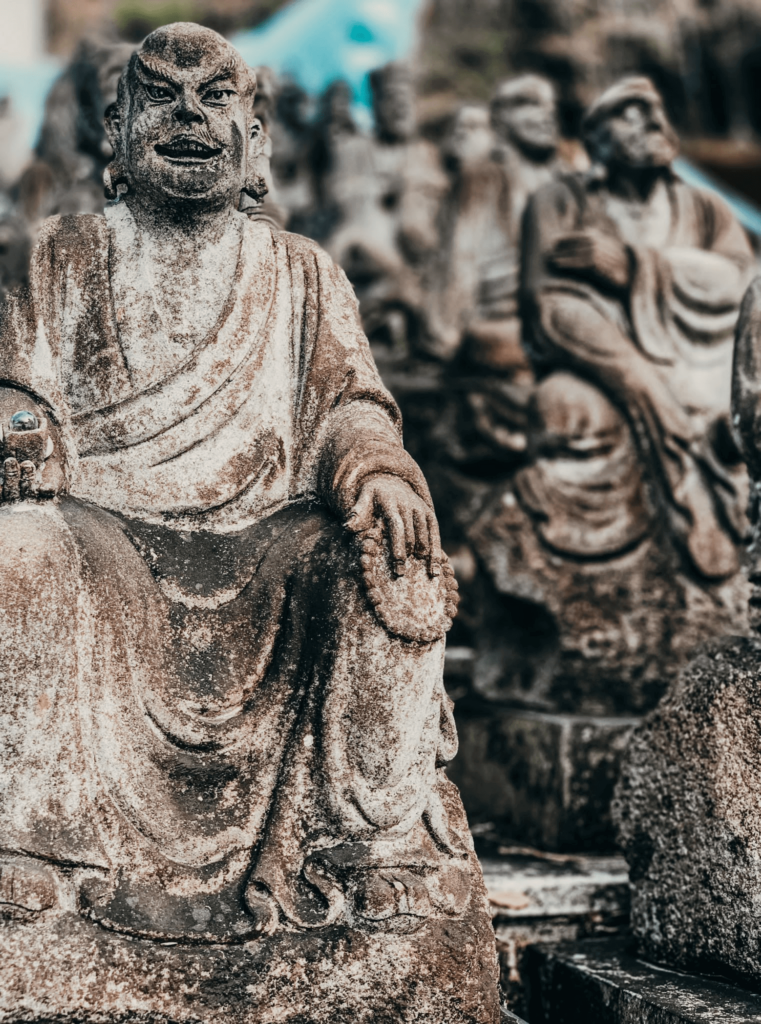
Image credit: @siputsedut86
Meanwhile, a large group of 500 arhat statues is located near the Fudō Myōō. Arhats are Buddhist followers who have achieved nirvana, and the detailed, emotive expressions on these statues are worth perusing.
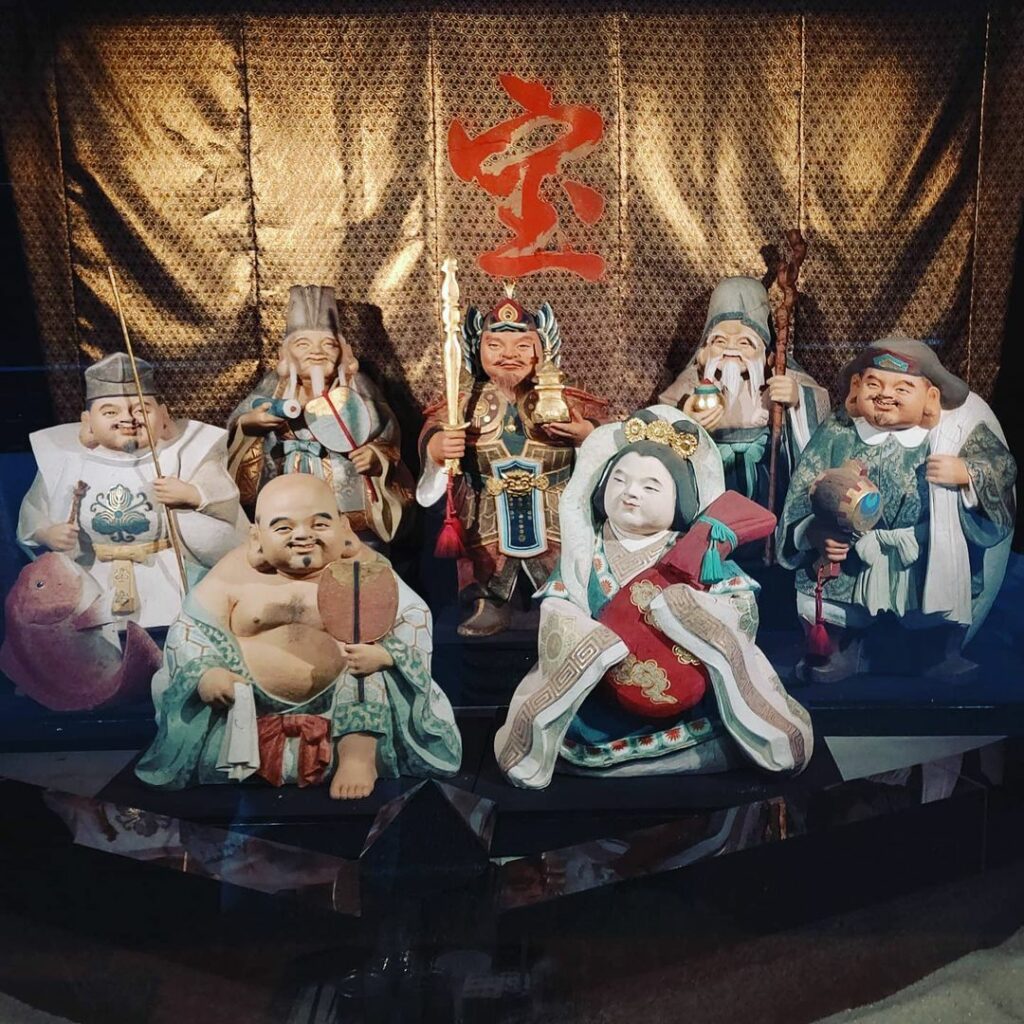
Image credit: @sinichiro_7147
There’s also a Shichifukujin Tunnel in Nanzoin Temple, where you’d find the Seven Lucky Gods (七福神; shichifukujin) within. If you’d like to pray for prosperity, the Gods are here to listen.
Getting to Nanzoin Temple
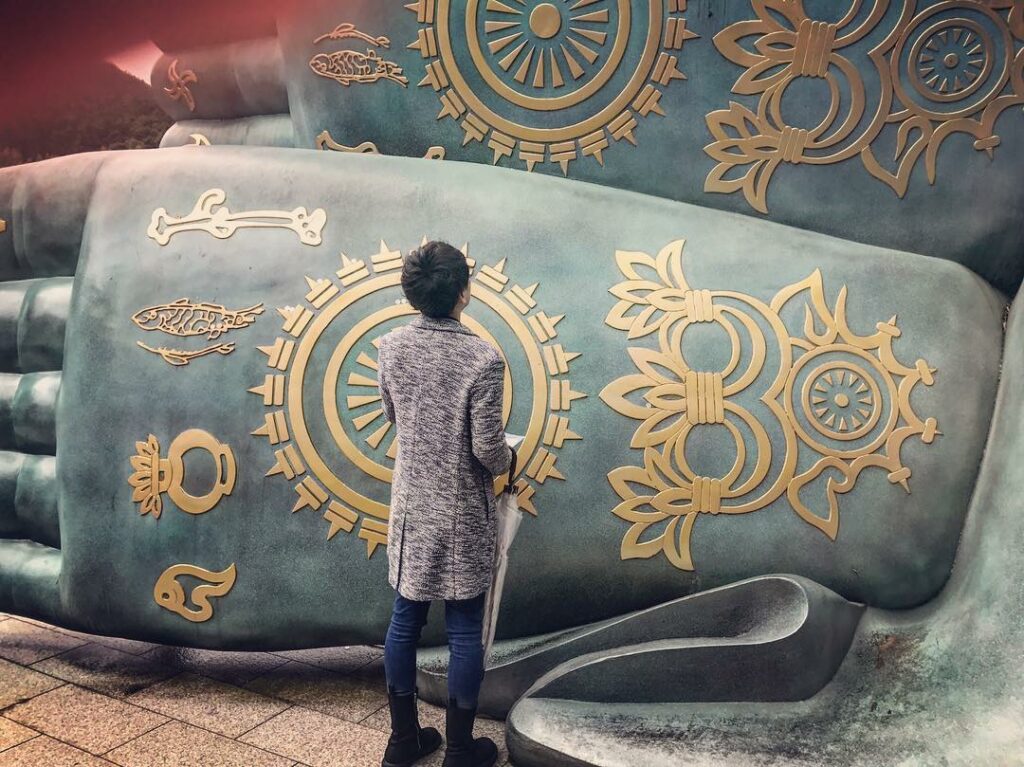
Image credit: @maeg_58
The Nanzoin Temple is a popular destination for the “Sasaguri 88” pilgrimage, which entails visiting 88 Buddhist temples in Fukuoka. As such, guests must remember that the temple is a sacred location and are expected to behave respectfully. Rather than just frolicking about, snapping photos for social media, do take this opportunity to learn more about Buddhism and Japan’s religious history.
Getting there: The temple is a 3-minute walk away from Kidonanzoin-Mae Station, which is located along the Fukuhokuyutaka Line.
Address: 1035 Sasaguri, Kasuya District, 811-2405 Fukuoka
Opening hours: 9AM-4.30PM, Daily
Admission: ¥500 (~USD4.52) to enter the prayer room located within the reclining Budhha statue.
Telephone: 092-947-7195
Website
For more articles, check out:
- Sumo wrestlers compete to make babies cry at the Naki Sumo Baby Crying Contest
- Book and Bed Tokyo Shinsaibashi has sleeping pods in bookshelves
- Saccan Yatai is one of the last old-school ramen carts in Tokyo
- Japan travel tips for first-time travellers
- Japanese woodblock prints and what their depicted locations look like today
Cover image adapted from: Roméo A
